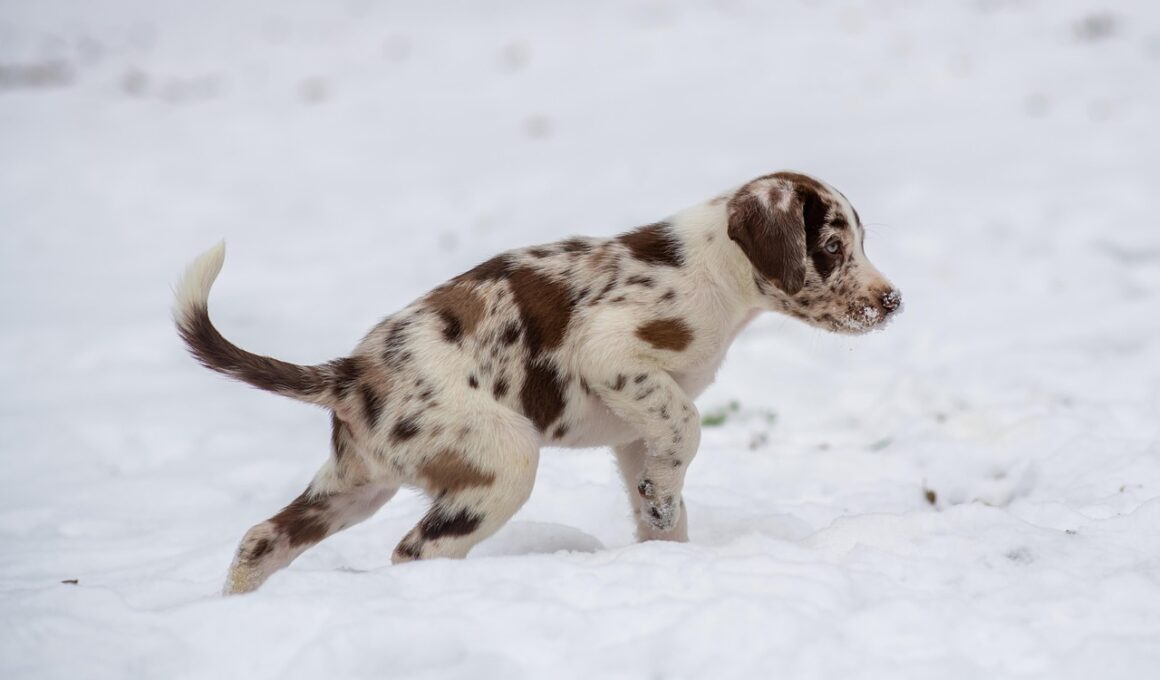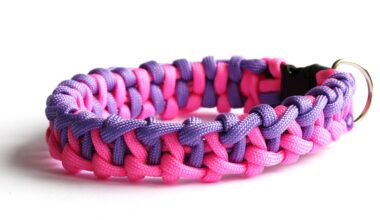Traveling Safely with Your Puppy: Health Considerations
Traveling with your puppy can be an exciting adventure for both of you, but it comes with certain health considerations that you must keep in mind. Vaccination is critical before you embark on your journey. Ensure your puppy is up-to-date with vaccines such as rabies, parvo, and distemper. Check with your veterinarian about the specific vaccinations required for your destination. Furthermore, prepare a health certificate to prove that your puppy is fit for travel. This may be required by airlines or hotels, so don’t overlook this step! Traveling can expose your puppy to new environments, which can lead to stress or illness. Make sure to introduce your puppy to the idea of traveling gradually. If you’re going by car, start with short rides and gradually increase the distance. This helps your puppy to adapt. Also, make sure to have all the necessary supplies such as food, water, and a comfortable crate. Remember to keep your puppy hydrated throughout the trip, especially in hot weather to prevent dehydration. In addition, be cautious when taking your puppy to public areas during your travels.
Regular check-ups are crucial if you’re going to travel, so schedule an appointment with your veterinarian before the trip. Discuss any specific health concerns or potential issues your puppy might face during the journey. It’s also wise to research the locations you plan to visit. Some places might have restrictions on pets, and it’s important to know this ahead of time. Make a list of pet-friendly accommodations and activities that will allow your puppy to stay comfortable and enjoy the trip as much as you do. Carry a first aid kit designed for dogs to help you manage minor accidents or health issues. Include items such as antiseptic wipes, bandages, and medications prescribed by your vet. Ticks and fleas can be an issue when traveling, so apply preventive treatments as necessary. Ensure your puppy is protected from these pests before you set out. If you plan to hike or visit heavily wooded areas, check your puppy regularly for ticks after excursions. Trim their nails and keep their coat well-groomed to avoid discomfort while traveling and prevent any health issues.
Understanding Puppy Nutrition
Nutrition is another key aspect to consider while on the road. Maintaining your puppy’s regular diet can help avoid digestive issues that might arise from sudden changes in food. Pack enough of your puppy’s usual food for the entire trip, plus a little extra in case of delays. If you’re traveling long distances, plan stops along the way to allow your puppy to stretch, relieve itself, and eat. Make mealtime a consistent routine to reduce stress and maintain stability in your puppy’s life. Also, avoid feeding them a large meal right before traveling; instead, opt for small portions that are easy on their stomach. Water is equally important; ensure your puppy has access to fresh water at all times. Dehydration can be severe, especially during warm weather. Hydration will keep your puppy active and alert, which is vital during your travels. Bringing along a portable water bowl will make it easier to keep them hydrated. Always choose pet-safe water sources to prevent any sickness from contaminated water. Offer your puppy water regularly during travel breaks to keep hydration levels optimal.
Road safety is another consideration; always secure your puppy in your vehicle to prevent distractions. A safety harness or a pet seatbelt can protect both you and your puppy. Never allow your puppy to stick their head out the window, as this poses a serious risk of injury. It’s also essential to take breaks every couple of hours so your puppy can relieve itself and stretch its legs. When you stop for gas or food, never leave your puppy in the car unattended, particularly in hot weather. The temperature inside a vehicle can soar, leading to heat exhaustion or heat stroke. If traveling by air, check the airline’s policy regarding pet travel, as they have specific requirements. When flying, keep your puppy in an airline-approved travel carrier that is comfortable and spacious enough for them to stand, turn around, and lie down. Always label the crate with your contact information and ensure it has adequate ventilation. Additionally, provide familiar items like blankets or toys to make the travel crate a comforting space that smells like home.
Puppy Socialization in New Environments
Puppies are social creatures and need proper exposure to various locations and people while you travel. However, introducing them to new environments should gradually be managed to mitigate anxiety. Begin by familiarizing your puppy with the sights and sounds of your destination before fully immersing them in new experiences. When you reach your chosen spot, allow your puppy to explore safely. Monitor their behavior for signs of stress. If your puppy appears overwhelmed, take a step back and provide reassurance. Enjoyment and comfort come first. Keep your puppy on a leash during these excursions to ensure their safety while discovering their surroundings. Consider carrying treats to reward positive behavior when exploring. Meeting new humans and friendly dogs can be beneficial for socialization, but ensure these interactions are safe and on your terms. Puppy classes are also a great way to socialize your furry friend, and you might find local training facilities wherever you go. Planning fun and manageable social outings for your puppy will help them adjust more easily, both at home and during your travels.
Additionally, it’s essential to recognize that not every puppy is equally social. Some breeds may naturally require more time to adjust to new sights, sounds, and people. This awareness will help in creating a comfortable traveling experience for your pet. If you notice any signs of fear or discomfort, like trembling or excessive barking, it’s crucial to provide a calming presence. Use soothing words, gentle touches, and a calm tone to reassure your puppy. Having an anxiety wrap or a calming aid can sometimes help alleviate their stress. Consult your veterinarian about suitable calming methods tailored to your puppy’s needs. Explore local options for pet-friendly places to visit while traveling. Many locations offer parks, beaches, and trails ideal for puppy-friendly outings. Be considerate of leash policies and clean up after your pet to help maintain a friendly atmosphere for all visitors. After enjoying new spaces together, consider visiting familiar places to reinforce your puppy’s sense of safety and security. Your travels can provide wonderful memories for both you and your puppy if considered carefully and planned thoughtfully.
Conclusion: Preparing for the Journey
Preparation remains the cornerstone of successful travels with your puppy. Start at least a week in advance to ensure you have everything you need. Make a checklist highlighting vaccinations, health certificates, travel gear, and first-aid necessities. Ideally, visit your puppy’s vet well ahead of your travel date to avoid any last-minute surprises. Familiarize your puppy with their travel crate and supplies by allowing them to explore. This helps your pup establish a sense of safety and familiarity. Practice makes perfect, so consider short trips before the main journey. Assess how your puppy responds to different environments, and adjust your plans as needed. If traveling by air, begin crate training well in advance to ensure your puppy is comfortable inside their carrier. Familiarize them with it at home and consider leaving it open for your puppy to explore. Finally, ensure that you have a charging pack for your mobile devices, so you can access crucial information, maps, or emergency contacts while on the road. With the right planning, you can create wonderful travel experiences that bring you and your puppy even closer.
Ultimately, prioritizing your puppy’s health and well-being during travels is vital. The experiences you create can lay the groundwork for a fulfilling life for your puppy. A healthy and happy puppy is better equipped to handle travel experiences and adapt to different environments. In essence, knowledge fuels the preparation necessary to ensure a safe trip for your four-legged companion. Through meticulous planning, you can maintain your puppy’s continuity in daily living, thus minimizing stress. The products you select for traveling should enhance their comfort, while keeping health considerations at the forefront. With a well-packed first aid kit, appropriate nutrition, and regular vet checks before embarking on your journey, you’ll dramatically reduce potential health risks. Include activities that align with your puppy’s personality and energy levels, so they remain engaged. Make the journey enjoyable, so your puppy views traveling positively in the future. In conclusion, your focus on puppy health and safety creates positive memories for both you and your beloved companion as you explore the world together. Travel can be a delightful bonding experience that opens doors for adventures and exploration when done correctly.


